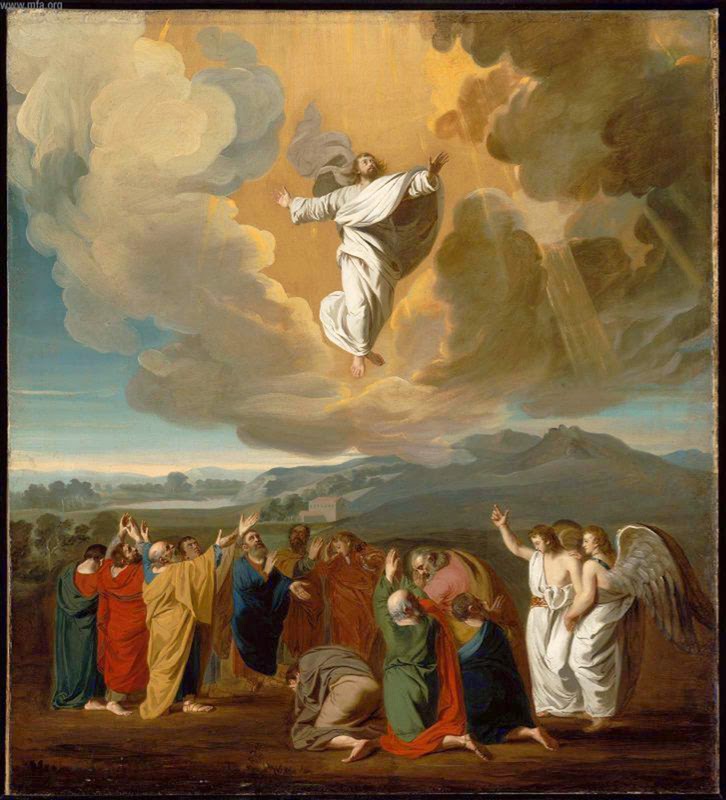your flock in this valley deep, dark,
with solitude and crying..."
We are in that time of the first novena, between the glories of the Ascension and the great breath of Pentecost. During these days, we remember how the Apostles spent them, reconstituting their number after the fall of Judas, praying and praising God, both in the synagogue and in the Upper Room, together with the All-Holy Theotokos. They had that hopeful message from the angels: "The one taken up from you into heaven, the same will come in the way you saw him going into heaven." Jesus would return in glory, riding on the clouds, seated on the throne of judgment and righteousness, and we pray that, on that day, we will be among those taken up into the clouds to be with Him.
Yet were the Apostles always that hopeful and joyful during this time? Did they not experience a solitude, a feeling of loss? For Christ had gone from among them, and the Spirit had not yet come upon them. Fray Luis de León, an Augustinian friar, meditated on the pain the Apostles may have felt during this novena, as the Lord Who had risen from the dead left them for a second time, never to return in that same form until the Parousia. "To whom shall we go?" Peter responded when Jesus asked if the Apostles would leave Him upon hearing His hard teachings. At that time, it was a statement of trust, for it continued, "You have the words of everlasting life." Yet the echo of that question can be heard in this poem: "Now that you have left us, Lord, to whom are we to go?"
Let us meditate on what loneliness the Apostles may have felt at this time, for, though they were great saints, they were still also men. Let the poetry of Fray Luis guide our reflections on this time, but let us never lose sight of the hope Christ gives us and the great outpouring of grace that will come on Sunday.
"On the Ascension"
"And you leave, holy Pastor,
your flock in this valley deep, dark,
with solitude and crying,
and you breaking the pure
air, you go to the immortal security!
The ones before well fated,
and the ones now sad and afflicted,
at your breasts raised,
of You dispossessed,
to where will they turn now their sentiments?
What will see the eyes
that saw the beauty of your countenance,
that was not angry with them?
the one who heard your sweetness,
what will he have but deafness and misfortune?
That turbid sea
who will give it stop? who harmony
to the wild wind blowing?
being yourself enclosed,
what north will guide the ship to port?
Ay! cloud jealous
even of this brief pleasure, what does it afflict you?
where do you fly quickly?
what richness you take away!
what poor men and what blind men, ay!, you leave us!"
The Ascension (1775) by John Singleton Copley (1738-1815)
The Ascension (1775) by John Singleton Copley (1738-1815)
Nota Bene: The poem is Fray Luis de León's Oda XVII: "En la Ascensión." The original Spanish is found in the collected works of Fray Luis edited by P.M. Fray Antolin Merino (Madrid: Compañía de Impresores y Libreros del Reino, 1885), Volume IV, pp. 323-4, which can be found online here.
Text ©2014 Brandon P. Otto. Licensed via CC BY-NC. Feel free to redistribute non-commercially, as long as credit is given to the author.


No comments:
Post a Comment